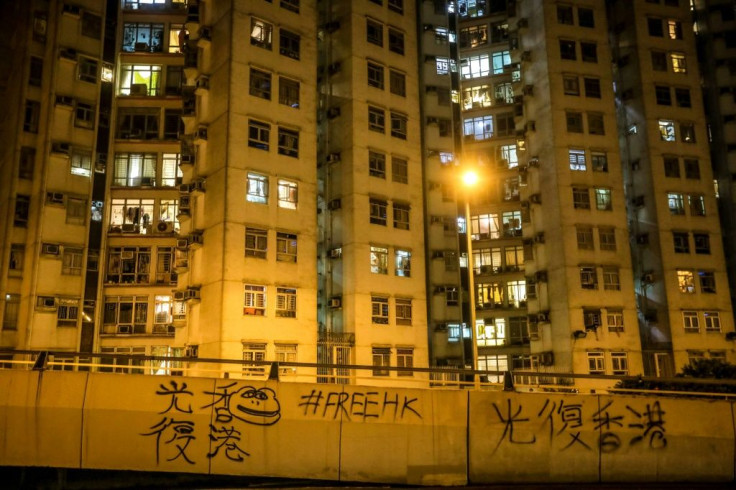China Calls Hong Kong Protesters 'Mobsters' After Stabbing

China has slammed radical protesters in Hong Kong as "mobsters" using violence to influence upcoming local elections, after a pro-Beijing lawmaker was injured in a stabbing.
The international finance hub has been shaken by five months of huge and increasingly violent protests calling for greater democratic freedoms and police accountability.
With Beijing and Hong Kong's unpopular leader Carrie Lam refusing to offer a political solution to the protesters' grievances, violence has spiralled on both sides of the ideological divide.
In the latest incident, a man holding a bouquet approached pro-Beijing lawmaker Junius Ho on Wednesday morning as the politician was campaigning in his constituency near the border with China.
The attack was "not only a serious criminal act but also pure election violence," Xu Luying, spokeswoman for the Hong Kong and Macau Affairs Office of China's central government, said Thursday, according to the official Xinhua news agency.
Xu said radical protesters in Hong Kong "intend to create a 'chilling effect' by threatening and intimidating their candidates and their supporters", in order to "affect the election results of the district councils and realise their purpose of seizing political power".
Xu also called for "strong punishment" against violence in Hong Kong and for a "fair, just, safe and orderly environment" for the district elections, set to be held on November 24.
In October, democracy activist Joshua Wong was barred from contesting a seat in the upcoming polls.
An election officer had ruled that the concept of self-determination advocated by Wong's party, Demosisto, contradicted the Basic Law, Hong Kong's mini-constitution.
Meanwhile, China's state-run Global Times tabloid on Friday compared some student protesters at a recent university forum in the city to "radicals during the Cultural Revolution."
A clash broke out involving a group of students including at least one believed to be from mainland China at the Hong Kong University of Science and Technology (HKUST) on Wednesday, the South China Morning Post reported.
The chaos erupted during a forum at which HKUST president Wei Shyy said he would condemn police if they were found to have caused the four-metre fall on Monday of a student who subsequently suffered a serious brain injury, SCMP said.
Global Times called the local students involved in the fracas "politically brainwashed, almost losing their ability of independent thinking" and suggested that one student had faked being pushed by a mainland student in order to instigate violence against the mainlander.
The nationalist tabloid warned that "Hong Kong is in decline" and that the city's universities would not continue to flourish without mainland support.
tjx/lth/aph
© Copyright AFP 2024. All rights reserved.







